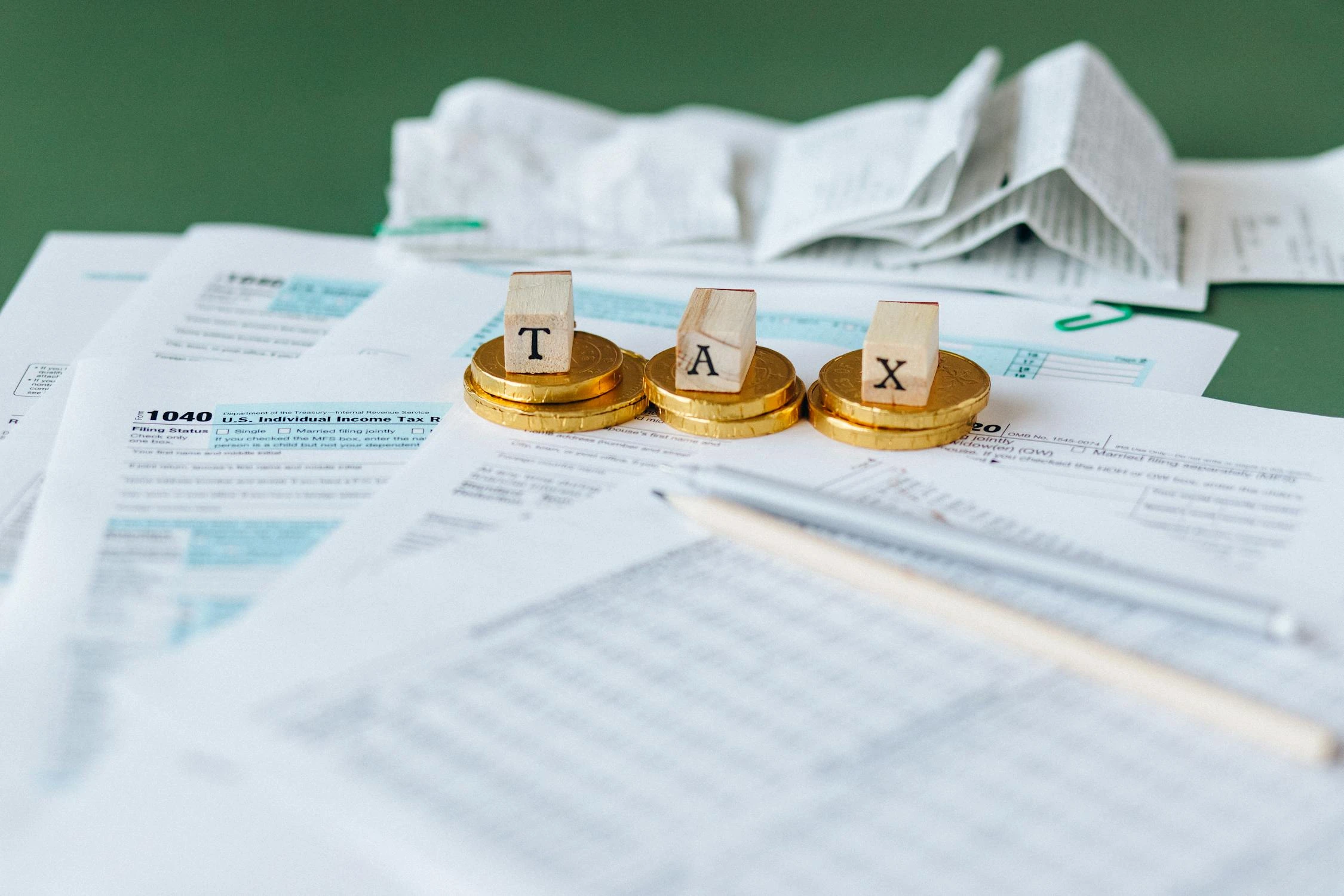Tax breaks in the UK will grow your returns and ease your financial burden. Read more to know about the best tax breaks in the UK and how individuals and business owners can reduce tax liabilities.

The UK government collects around £1 trillion in revenue each year, with the majority coming from taxes. While taxes are essential for funding public services and infrastructure, they can also significantly burden businesses and individuals. This is where tax breaks come in.
In the UK, a tax break refers to any provision that allows individuals or businesses to reduce their tax liabilities through deductions, exemptions, or credits.
In this blog post, We will explore how employees and business owners can take advantage of these tax breaks to save money and reinvest those savings to promote personal or business growth.
Related Read:
Key Takeaways
- The UK offers a range of tax breaks that help individuals and businesses reduce their tax liabilities, allowing for significant savings and financial growth.
- Key tax breaks for individuals include the Personal Allowance, pension contributions, and ISAs, while business owners benefit from deductions, R&D tax credits, and VAT relief.
- These tax incentives not only ease the financial burden but also encourage reinvestment and business expansion.
- Taxpayers can maximize these savings opportunities for a more secure financial future by planning ahead and seeking expert advice.
Tax Breaks for Individuals (Employees or Self-Employed) in the UK
The UK offers several tax breaks designed to ease the tax burden on employed or self-employed individuals. Here are the best eight most rated tax breaks for individuals in the UK:
Personal Allowance
The Personal Allowance allows individuals to earn up to £12,570 tax-free each year. This provision significantly reduces taxable income, enabling individuals to retain more of their earnings.
It's particularly beneficial for lower-income earners, ensuring that they are only burdened by income tax once they reach a higher income threshold.
Pension Contributions
Contributions to personal or workplace pensions qualify for tax relief, effectively lowering taxable income. This encourages individuals to save for retirement while benefiting from immediate tax savings.
Individuals can enjoy the dual advantage of reducing their tax liability and securing their financial future by investing in pensions.
ISAs (Individual Savings Accounts)
ISAs allow individuals to save or invest up to £20,000 annually without paying tax on the interest or capital gains.
This tax-free growth is a powerful incentive for individuals to build their savings or invest for the future, maximizing their financial potential without the burden of tax on their gains.
Marriage Allowance
The Marriage Allowance permits married couples or civil partners to transfer up to £1,260 of their unused personal allowance to their partner. This can reduce the overall tax bill, providing a simple yet effective way for couples to benefit from tax savings.
It supports family financial planning, allowing partners to support each other in maximizing their allowances.
Dividend Allowance
Individuals receiving dividends from investments can benefit from a tax-free allowance of £1,000. This allowance applies to all shareholders and enables individuals to earn passive income without paying tax on the initial amount. It encourages company investment, providing a valuable incentive for building wealth through dividends.
Capital Gains Tax (CGT) Exemptions
The annual CGT exemption allows individuals to realize up to £6,000 in gains tax-free when selling assets like property or shares. This exemption benefits investors, enabling them to manage their investment strategies effectively and keep more of their profits without incurring tax liabilities.
Child Benefit
Parents can receive tax-free child benefit payments, which provide financial support for raising children. While higher-income families may have to repay some of the benefits through a tax charge, this allowance still offers significant assistance to many families, helping offset childcare and upbringing costs.
Gift Aid
Through the Gift Aid scheme, individuals can donate to charities while enhancing the value of their contributions. Donors can claim tax relief on their donations, and charities benefit from an additional 25% reclaimed from HMRC. This encourages charitable giving and provides a tax-efficient way to support causes individuals care about.
Tax Breaks for Business Owners (Including Sole Traders and Limited Companies) in the UK
Business Expenses Deductions
Business owners, sole traders or limited companies, can deduct legitimate business expenses from their profits before tax. This includes costs like rent, utilities, office supplies, travel, and even employee salaries. By claiming these deductions, businesses reduce their taxable income, lowering their overall tax liabilities and freeing up cash flow for reinvestment.
Annual Investment Allowance (AIA)
The Annual Investment Allowance (AIA) allows businesses to deduct the full value of qualifying assets, such as machinery or equipment, from their profits up to £1 million per year. This tax break is especially beneficial for companies making significant capital investments, as it allows them to reduce taxable profits and support expansion or modernization.
Corporation Tax
UK-based limited companies are subject to Corporation Tax on their profits. As of 2023, the Corporation Tax rate stands at 25% for companies with profits over £250,000, while smaller companies with lower profits benefit from a reduced rate of 19%.
This tiered system helps small businesses manage their tax burden, while the overall competitive rate encourages businesses to remain in or relocate to the UK.
Research and Development (R&D) Tax Credits
The R&D Tax Credit scheme offers relief to companies investing in innovative projects, such as developing new products or improving existing technologies. Businesses can claim up to 33% of qualifying R&D expenditure as a credit against their tax bill.
This tax break is particularly valuable for tech startups and innovation-driven companies, helping to offset the costs of research and development.
Entrepreneurs' Relief (now Business Asset Disposal Relief)
Business owners selling all or part of their business can benefit from Business Asset Disposal Relief (formerly Entrepreneurs' Relief). This reduces the Capital Gains Tax rate on qualifying business disposals to 10% for gains of up to £1 million.
This relief rewards long-term business ownership by allowing entrepreneurs to keep more of the proceeds from selling their businesses.
Employment Allowance
The Employment Allowance allows eligible employers to reduce their annual National Insurance Contributions (NICs) by up to £5,000.
This is particularly beneficial for small businesses, as it reduces the cost of hiring staff and can help business owners invest in growing their workforce without facing steep payroll taxes.
Dividend Payments
For limited company owners, paying themselves dividends rather than salary can be a tax-efficient way to extract profits. Dividends are subject to a lower tax rate than salaries, and the first £1,000 is tax-free under the Dividend Allowance.
This provides business owners with an effective way to manage their personal tax liability while drawing income from their company.
VAT (Value Added Tax) Relief
VAT-registered business owners can claim back the VAT they’ve paid on business-related purchases, effectively lowering costs.
In addition, small businesses can benefit from the VAT threshold, meaning they do not need to register for VAT unless their turnover exceeds £85,000. This relief helps small businesses manage their tax burden and avoid VAT registration costs until they grow larger.
Final Thoughts!
There are various tax breaks available in the UK that lead to significant financial benefits for both individuals and business owners.
These ranges from personal allowances and pension contributions to R&D tax credits and VAT relief, these opportunities not only reduce tax liabilities but also promote savings and reinvestment.
Individuals and business owners taking full advantage of these provisions and seeking professional advice maximize their savings, reduce financial stress, and support long-term personal or business growth.
Read Also:

